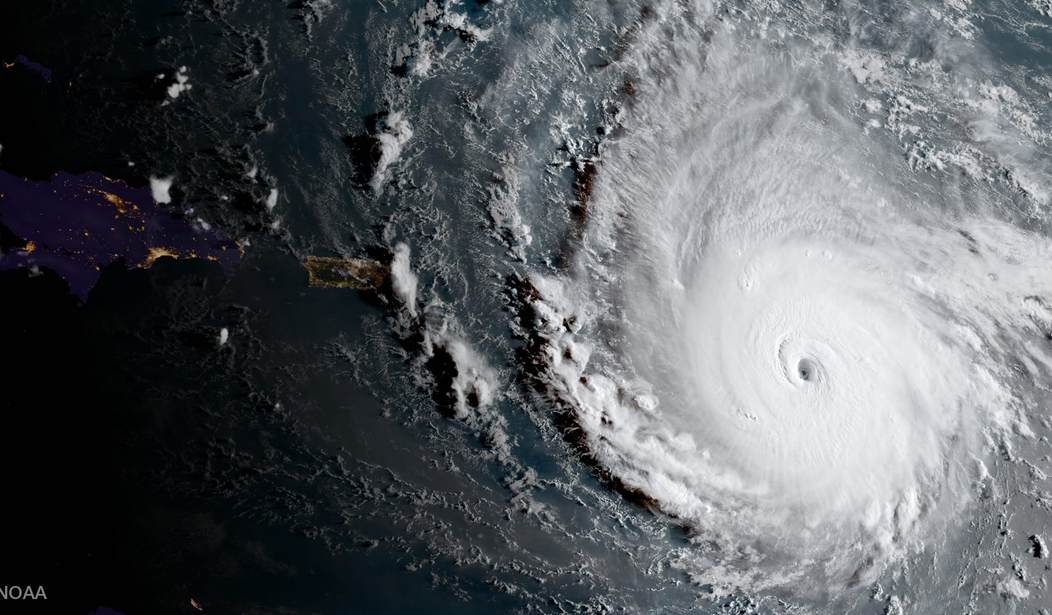Kerry Emanuel at the Washington Post thinks we need to stop referring to hurricanes as “natural disasters.” Why is that? No, he’s not claiming there’s a Bond villain with a hurricane ray menacing the American South.
Nope, nothing like that, but he still thinks we shouldn’t call these storms “natural”:
As the United States struggles to recover from two back-to-back hurricanes, it would be wise to reflect on why we keep having such calamities and whether they are likely to get worse.
We must first recognize the phrase “natural disaster” for what it is: a sham we hide behind to avoid our own culpability. Hurricanes, floods, earthquakes and wildfires are part of nature, and the natural world has long ago adapted to them. Disasters occur when we move to risky places and build inadequate infrastructure.
In the United States, we have in place a range of policies that all but guarantees a worsening string of Katrinas, Sandys, Harveys and Irmas as far as we can see into the future. Climate change acts as a threat-multiplier to these policy-generated disasters, making them progressively worse than they would have been in a stable climate.
[…]
To make matters worse, climate change is increasing the probabilities of hurricane disasters in many places. Rising sea levels worsen storm surges, often the most deadly and destructive aspects of hurricanes. Sandy would probably not have flooded Lower Manhattan had it occurred 100 years earlier, when sea levels were about a foot lower in New York.
My own work demonstrates that the physical cap on hurricane wind speeds rises in a warming climate, permitting more intense storms like Irma to develop, and observations show that this cap is indeed rising. Basic physics tells us that hurricanes produce more rain in a warmer climate. Computer simulations confirm that the incidence of intense, destructive storms rises and that hurricane flooding from rain and storm surges gets worse in warmer climates, though the frequency of weaker storms may actually decline.
Now, I’m going to give Emanuel credit for one thing. Most of his rhetoric in this piece is actually free market-oriented. Arguing that laws capping insurance premiums prevent pricing according to risk is something I’d be willing to entertain, but not if you’re going to keep beating the climate change drum.
After Katrina, we were told that climate change meant that we were going to see more and more Katrinas, but we really haven’t. Sandy was strange because of where it hit — the northeastern U.S. Harvey and Irma are a double whammy, sure, but it’s not like this hasn’t happened anywhere before.
Every time anything happens with the weather, climate change alarmists always scream that this is proof they were right, even when their own models never are.
A planet’s climate is a complex thing, so it’s not hard to imagine the possibility that humans could potentially impact it in a negative way. Maybe.
However, that complexity is also the likely culprit as to why these models are never accurate. Basically: there are at least some factors that affect our climate that aren’t being accounted for.
So until you can show me that you can accurately predict the climate in five years or so, I see no reason to take your word that we shouldn’t call these disasters “natural.”









Join the conversation as a VIP Member